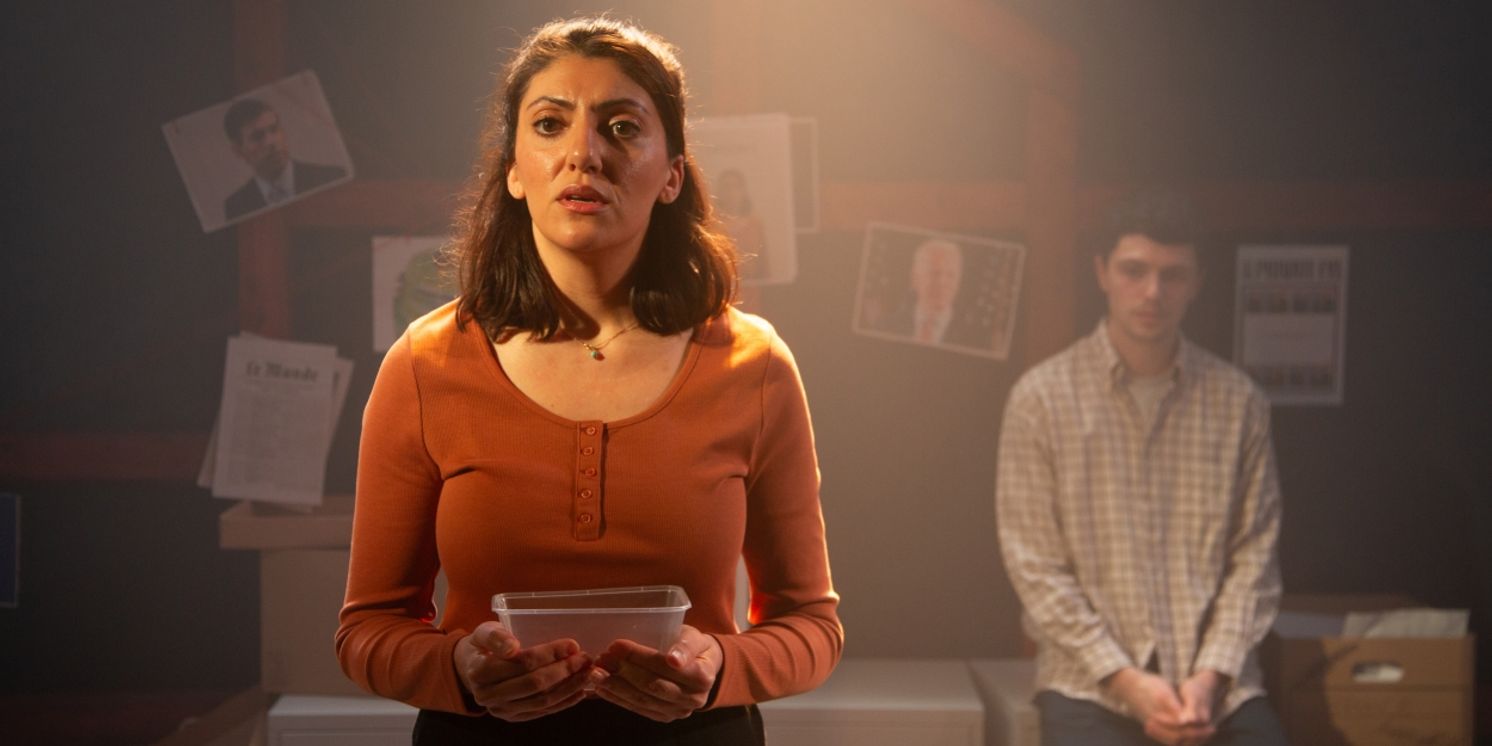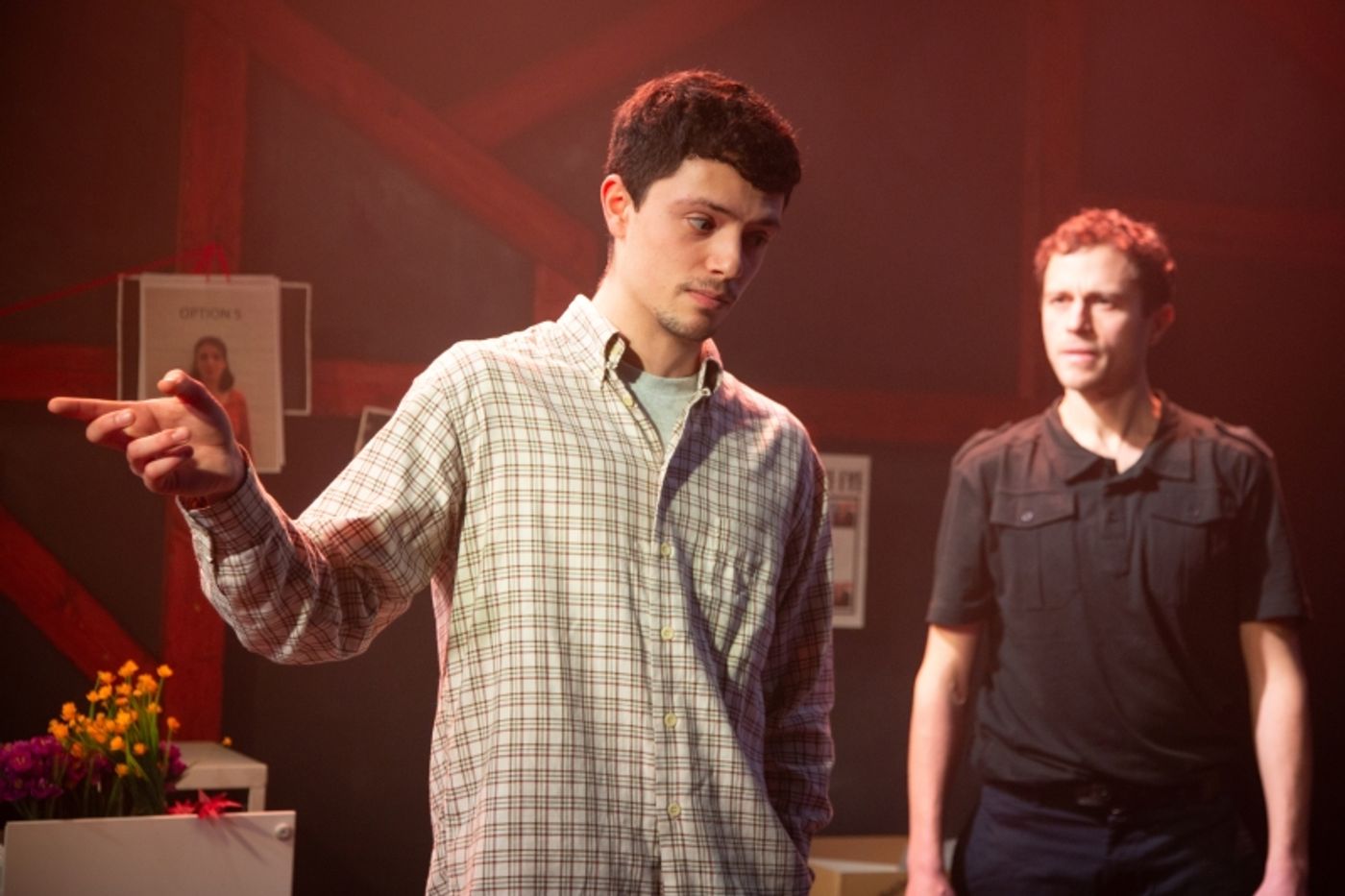Review: THE EU KILLED MY DAD, Jermyn Street Theatre
Dark comedy traces 50 years in the life (and death) of a Turkish father

 A man is shot dead.
A man is shot dead.
Always a strong opening, leaving us keen to find out the who and the why. Aaron Kilercioglu’s play (winner of the Woven Voices Prize 2023) answers those questions - sort of - over a snappy 75 minutes mixing the real and surreal, the comic and the tragic, the political and the personal. That takes plenty of craft, but does the tale have the soul that theatre needs?
Berker, the victim’s son, arrives in rural Turkey from England the day after the homicide apparently by coincidence, speaking barely any Turkish, but keen to discover his roots. He meets his half-sister, Elif, the two greeting each other with a coldish handshake and the action soon moves backwards and forwards in time, from Mustafa’s emigration to London in the early 70s to his return to Turkey after the 1980 coup, a second relationship and his eventual entanglement in the bloody aftermath of the 2016 attempted putsch.
It’s something of a crash course in Turkish history, with the USA and EU lurking in the shadows, the country’s size, strategic location and religion pulling in different directions as geopolitics impacts even into the little rural village where Mustafa lived (and died).
It’s something of a whodunnit too, Berker and Elif assigning opportunity and motives to various associates of Mustafa, including themselves. Two policemen have their own reasons for wrapping up a cold case, Berker their scapegoat. We see how Mustafa (and his country) have a permanent target on their backs.

With sharp dialogue, there are plenty of laughs in this black comedy, directed with pace and the precision multi-rolling requires by Georgia Green. There are messages, but they keep folding in on themselves so never become didactic, avoiding the temptation to browbeat us with an agenda.
The five strong cast play their part in avoiding confusion. Luca Kamleh Chapman is the spiky protagonist, Berker, and his relationship with Elif, beautifully played by Dilek Şengül, is well drawn, capturing the fracturing of a family split by distance and culture, but more alike than either sibling would comfortably admit.
Tiran Aakel, Ojan Genc and Rosie Hilal deliver all the other characters, quickly establishing identities with a change of costume, accent or posture. We never lose track of where we are and who we’re with.
Though the play is funny (and that’s plenty enough for it to succeed) one wonders if the playwright’s ambition goes rather further than that. There’s plenty of political commentary on how the Turkish state has been vulnerable to internal and external pressures and how they have played out, pushing Mustafa towards his demise. None have the entire blame laid at their door, but there’s a lack of good faith from the individuals and the institutions that touch his life.
Is Mustafa a proxy for every Turk in an allegory of their last 50 years spent edging towards a more theocratic, but more European state? Is it a more general play about how migration can split a family, but also offer opportunities in a rapidly changing world? Is it really just about the LOLs with a side order of Gilliamesque craziness?
Ultimately, that’s in the eye of the beholder and not every play should bring its depths to the surface explicitly. Kilercioglu has projects in the works and one feels that The EU Killed My Dad is destined to be viewed as an early work by a substantial playwright. The potential is there, but may not be fully realised in this particular production.
The EU Killed My Dad at Jermyn Street Theatre until 6 February
Photos: Jack Sain
Reader Reviews
Videos

